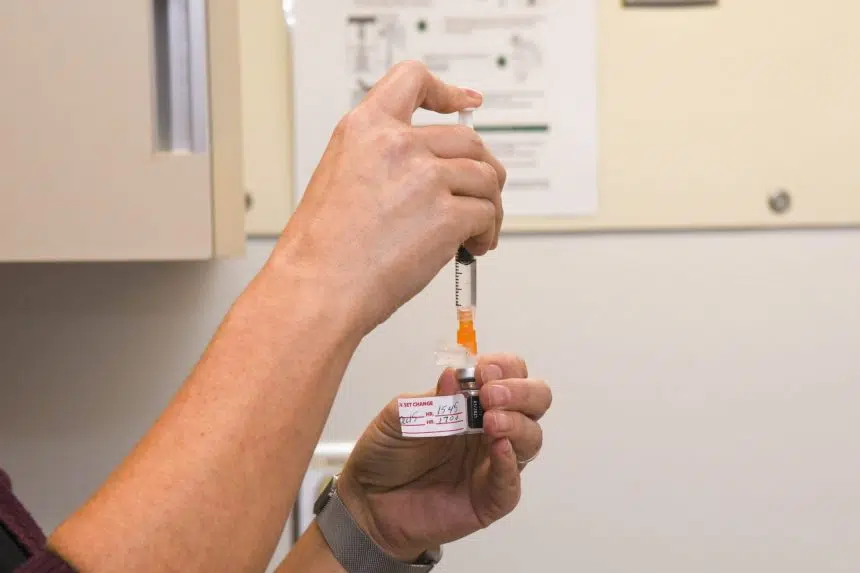With Saskatchewan inching towards Step Three of its Re-Opening Roadmap, a Regina infectious disease physician is cautioning against an early reopening.
Dr. Alex Wong is conflicted. While he wants to see the province reopen and get back to large gatherings, he’s hoping it can be done with robust second-dose statistics.
His top concern is the B.1.617.2 variant first identified in India, now known as the Delta variant.
“It’s just hard to know what Delta is going to do. (It’s) more transmissible than Alpha was — we had a huge outbreak with Alpha here in Regina, so now the numbers are way different. Vaccine numbers are obviously way up,” Wong said on Wednesday’s Greg Morgan Morning Show.
According to the province’s daily update on Tuesday, 69 per cent of those 18 and up have received their first dose, while 67 per cent of those 12 and older have also received their first dose.
The province plans to remove all masking and gathering guidelines by July 11 if both of those age categories hit the 70 per cent threshold by this Sunday.
Only 1,161 people received a first dose Tuesday, while 5,719 people were given a second dose.
While the province is doubling down on its efforts to increase vaccine availability, Wong is hoping people follow through and keep booking second dose appointments.
“So that in the summer or the fall whenever (Delta) becomes our dominant strain, hopefully what we’re going to see is a little bump as opposed to a big surge like we saw in March and April,” he said.
This past spring, Regina was under localized restrictions as the B.1.1.7 variant first identified in Great Britain, now known as Alpha, became the dominant strain in the area.
New data available this week from Public Health England shows two doses of any available vaccine currently being offered in Saskatchewan is effective at protecting against both the Alpha and Delta variants.
One dose of AstraZeneca offered 71 per cent protection against hospitalization.
The Pfizer-BioNTech vaccine is 96 per cent effective against hospitalization after two doses, while the AstraZeneca vaccine jumped to 92 per cent effective against hospitalization after two doses.
That’s similar to the vaccine effectiveness against hospitalization from the Alpha variant.
“This new evidence is groundbreaking — and proves just how valuable our COVID-19 vaccination programme is in protecting the people we love,” said Matt Hancock, England’s health and social care secretary.
“It’s clear how important the second dose is to secure the strongest possible protection against COVID-19 and its variants — and I urge everyone to book in their jab when offered.”
Even with the encouraging news, the protection offered by either vaccine against contracting less severe illness caused by Delta is much lower.
Earlier estimates from Public Health England said both vaccines were 33 per cent effective against symptomatic disease caused by Delta three weeks after the first dose compared to around 50 per cent effectiveness against the Alpha variant.
The latest study was based on evidence from 14,019 people who had COVID-19 caused by Delta in England this spring.
According to data gathered from health ministries across the world, England has 44 per cent of its population vaccinated with two doses. That’s more than three times as high as Canada’s 14 per cent.
Even with the stark difference between both countries, England announced its reopening would be delayed by a month due to surging Delta cases.
The reopening was scheduled to take place next Monday, but will instead be pushed back until late July.
Wong estimates 40 to 45 per cent of Saskatchewan’s population will need a second dose to avoid large outbreaks later this summer.
“That second dose number here in this province is rising rapidly, so hopefully we’ll continue to see that over the next two or three weeks,” Wong said.







